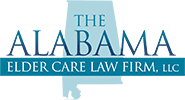

A power of attorney (POA for short) and guardianship require a person to make some of the same decisions. Yet, they are quite different in how they are established. Take a look at the differences between a POA and a guardianship.
Courts Decide in a Guardianship
Many adults go through life having the mental capacity to make their own financial, medical, and legal decisions. If the time comes that mental abilities decline to a point the person is incapacitated, someone needs to step in and make those decisions. This “guardian” or “conservator” makes all of the person’s decisions for them for the rest of their life, until the person is no longer incapacitated, etc.
In Alabama, people with a mental or physical illness, mental deficiency, incapacity due to advanced age, chronic drug or alcohol abuse, and disappearance, are all reasons a guardianship may be used. It’s often considered when Alzheimer’s disease has advanced to a point where a person cannot make sound decisions. Guardians and conservators can be a family member, caregiver, sheriff, etc.
To become a guardian, you must petition the court. The court appoints a guardian ad litem until a medical examination and hearing are completed. At that point, the court denies or approves the petition for guardianship. If the guardianship is approved, you get a letter designating your role as the guardian and/or conservator.
The Person Chooses Their POAs
With a POA, the person involved chooses a POA, not the courts. It’s a simple process done in a lawyer’s office. There are DIY POA kits online, but you must make sure they are legal and drafted according to the law to avoid disputes. That’s why it’s best to pay an attorney who specializes in elder law to draw up the POA documents.
POAs for medical and financial reasons are drafted in case of an accident or illness that permanently or temporarily incapacitates that person. For as long as is necessary, the POA agent would handle medical and financial decisions for the person who cannot speak for himself/herself. If the person recovers, the POA steps away from the role. It could also be a permanent role.
If your dad names you as his POA after having a stroke, you’d make decisions like whether to keep him on ventilators or have a feeding tube inserted with the hope he recovers. If there’s no hope for recovery, you’d tell doctors how your parent would want to be treated. Would your dad want to go into a hospice setting or go home with hospice nurses?
Which is better for your parents? It depends on the situation. Arranging POAs for medical and financial reasons is something they should do as soon as they can. If there’s a POA in place, guardianship may never become necessary. Talk to an elder law attorney to find out how to get started.
If you or a loved need assistance with a Power of Attorney in Trussville, AL contact Nolan Elder Law & Estate Planning today. (205) 390-0101
